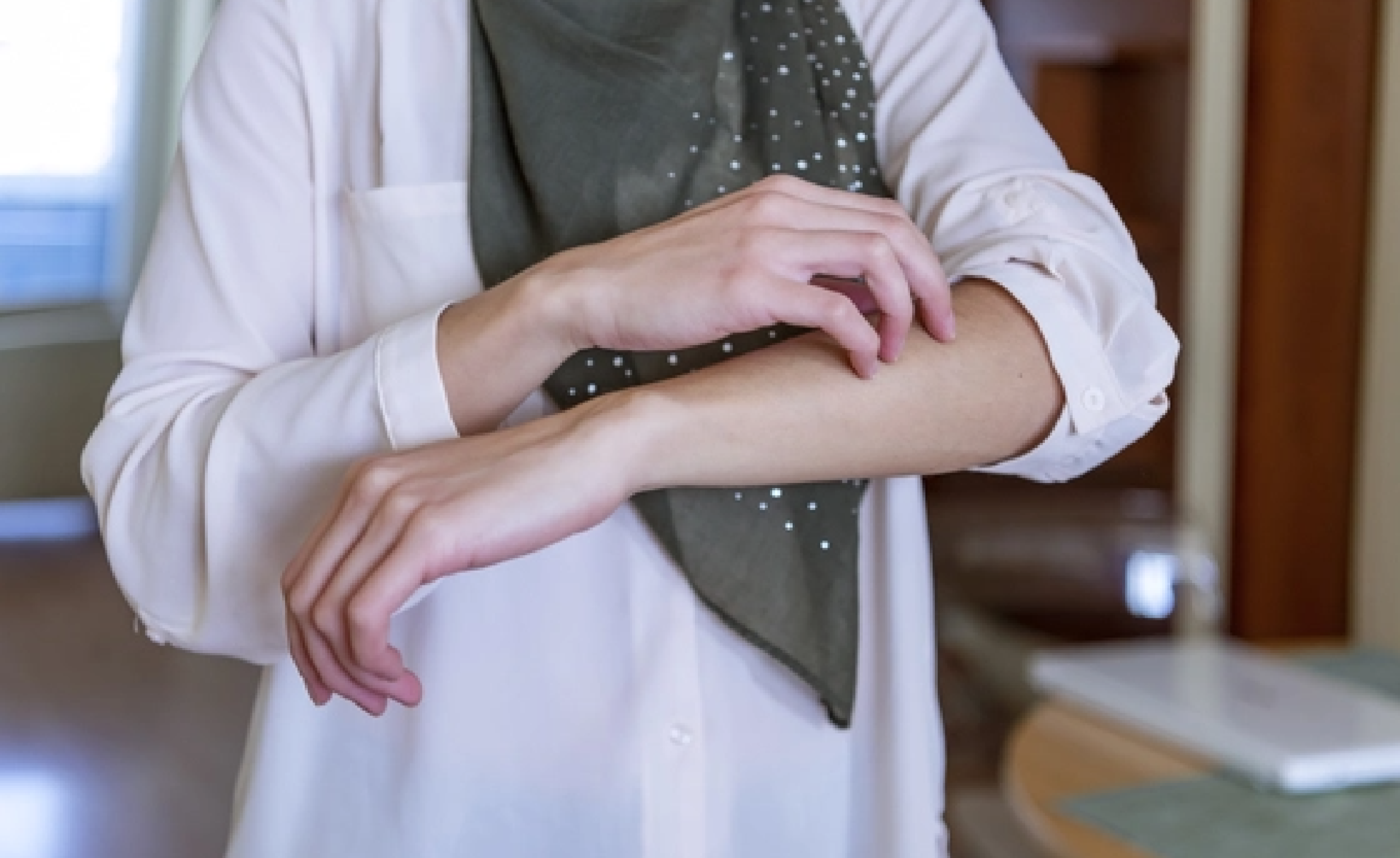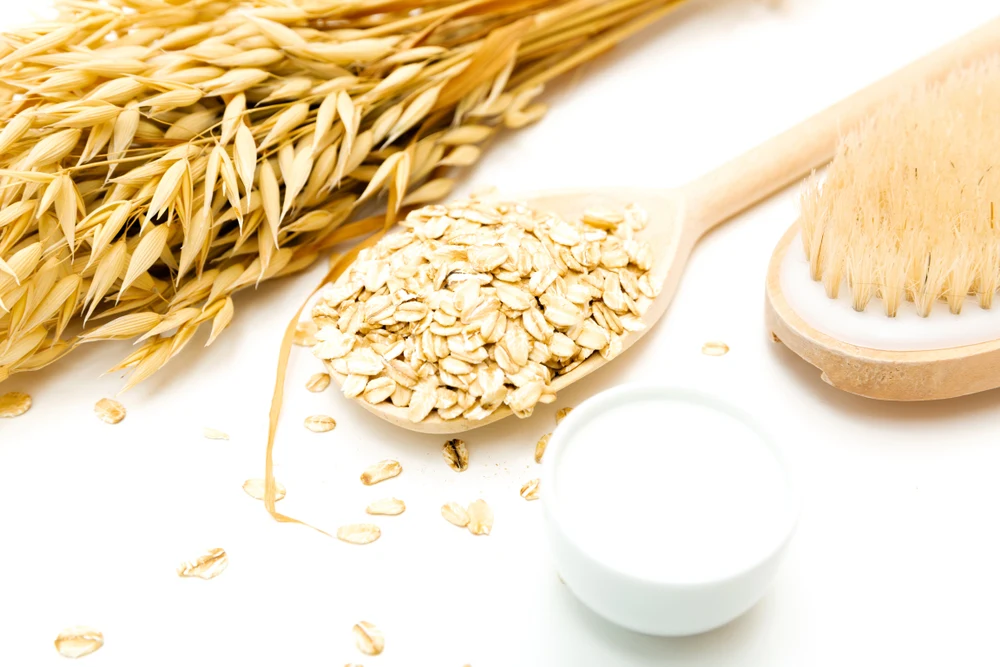While there's no cure for this skin condition, there are ways to treat those red patches and reduce your risk of future flare-ups, including using one of our favorite skincare ingredients: the mighty oat!
What is psoriasis, exactly?
Psoriasis has some major differences from other common skin conditions, such as the contact dermatitis rashes you might get when you're exposed to an allergen. Actually, psoriasis is a chronic autoimmune skin disease. It stems from a problem with the immune system that, unfortunately, can't yet be cured.
In general, you'll recognize psoriasis by red, itchy, scaly patches of skin. According to the National Psoriasis Foundation, the most common type — called plaque psoriasis — commonly appears on the elbows, knees and scalp. There are other types of psoriasis, as well, including one that affects the nails (called nail psoriasis) and another that appears between folds of skin (called inverse psoriasis). Because this condition can present in different ways and it's easy to mistake a flare-up for other skin conditions like eczema, visit your dermatologist for a definitive diagnosis.
What causes psoriasis?
Psoriasis is the result of an autoimmune condition, according to the Centers for Disease Control and Prevention, that causes the body to regenerate skin faster than normal. However, flare-ups come and go — yes, the patches will go away — and it's not always easy to tell what triggers them.
You might go for months or even years without a psoriasis flare-up. The Mayo Clinic suggests that environmental factors are usually to blame for new rashes — they could be triggered by the weather, alcohol, smoking or high stress levels. A skin infection or injury (such as a cut or sunburn) can also lead to a flare-up.
Some of these triggers are avoidable; some really aren't. So while your doctor can help you minimize your risk of psoriasis flare-ups, you should also have a plan in place to manage the rashes if they do pop up. That's where oats come in.
Can you use oats for psoriasis treatment?
If your psoriasis is severe, your doctor may prescribe medication to manage the symptoms. Over-the-counter products also can reduce inflammation and itch. The American Academy of Dermatology Association explains that mild corticosteroids such as hydrocortisone cream can help to reduce itch and inflammation, while scale softeners may make skin less scaly and reduce swelling.
Additionally, oatmeal — which is known to soothe the skin — has its own way of easing psoriasis symptoms. In particular, colloidal oatmeal can help to reduce itching and swelling, all while hydrating the skin. There are a variety of ways to incorporate colloidal oats for psoriasis into your skincare routine, including taking oatmeal baths or using an oatmeal-infused moisturizer. Most dermatologists recommend moisturizing daily to help your skin retain moisture and start healing.
While there's no cure for psoriasis, you don't have to wait out your next flare-up. With a strong skincare routine that gives your skin what it needs to fight off rashes and treat irritated areas, you can manage the symptoms. Using oats for psoriasis treatment is just one way to reduce the itch so you can get back to living your best life.





